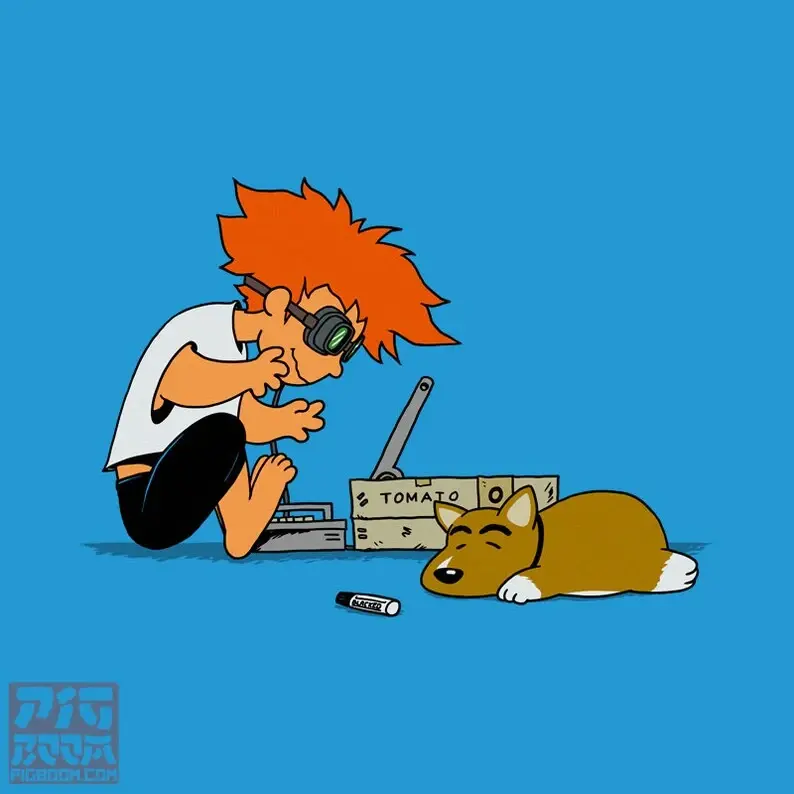- cross-posted to:
- technology@lemmy.world
- cross-posted to:
- technology@lemmy.world
Piracy exists because it’s easier than the alternative. Textbooks are expensive as hell and publishers are working to demolish the used book market - first by changing the version every year, and now with one-time-use mandatory software keys. Sites like Libgen wouldn’t have to exist if textbooks were $20 a pop, or if the used book market was allowed to exist. These problems are created by greed.
Our entire society is set up to wring out anyone who is unfortunate enough to find themselves buying anything.
And as resources get squeezed, more and more people are trying to claw at smaller and smaller pieces of the overall economic pie.
The breaking point will be catastrophic.
The breaking point will be catastrophic.
No it won’t. This thing won’t go out with a bang, it dies with a whimper. It looks like people slowly slipping, avenues of social mobility slowly narrowing, new generations getting dumber, your bills getting higher and you being able to afford less and less. And there is no “breaking point”. By the time you end up on the street, many others will already be there for whom noone wanted to rock the boat. And not many will want to do so for you either.
Just look at news from Hungary for a while, that’s how it looks like when the money runs out and can’t flow up anymore.
no breaking point
Is your glass ball of prophecy not aware of the concept of civil unrest?
i took their comment as more of a call to action, to highlight that there will be no “breaking point” unless we make one. if there are examples in other, similar countries where people simply did nothing rather than rising up, then it’s not hard to imagine it happening here. folks who talk about how we will reach a “breaking point” often don’t imagine themselves being part of the change.
“The Libgen sites deprive plaintiffs and their authors of income from their creative works, devalue the textbook market and plaintiffs’ works, and may cause plaintiffs to cease publishing certain works,” the complaint says.
The plaintiffs artificially inflate textbook prices so it all balances out.
we are quickly careening towards a world where textbooks cost $500 a pop and the majority of students obtain their books illegally. Piracy is a pain in the ass, but if students need their textbooks and the publishers make it impossible to obtain textbooks without taking out a loan, then publishers are effectively paying students to spend the time figuring out piracy. If a student makes $15 an hour at their job, then they could spend 30 hours researching and downloading their textbook and it would still be a better use of their time than actually buying a $500 textbook.
every dollar prevented from going to cengage or pearson is a win for college students
but their online homework and grading subscriptions that they tie in with textbooks is definitely making it harder, especially the way they pay off schools to push their texts and curriculum on professors in stem fields, it’s awful and puts students in a position where they’re forced to pay for a textbook regardless
I remember missing a certification test for a legitimate reason, calling to reschedule, spending hours on the phone with Pearson and being told there’s nothing to be done. They couldn’t refund, reschedule or be bothered with me even after I paid $150 for an exam and called soon after. Somehow the pinnacles of knowledge are corporations that care less about your knowledge and are much more concerned with emptying your wallets like a bully after lunch money.
This vast infringement is causing publishers and authors serious financial and creative harm, publishers allege.
Creative harm? As in switching out one graph for the another? Mixing up the table of contents? Maybe adding a sentence or two every few years when that research paper is in the public domain?
*worlds tiniest violin
an average of over 9 million visitors per month from the United States
Who wouldn’t be able to pursue a credible education otherwise.
Publishers should shut the fuck up and take the money that is given to them by rich kids parents. Everyone else can’t afford their shit. They’re making the decades old mistake of thinking that everyone that downloads their books freely would’ve paid for it.
They don’t care if those who can’t afford would be without. They want to squeeze every dime out of every student they can, it’s their business model.
I had a feeling this was going to happen when I saw that there were authors namedropping libgen while going after the AI people. Might wanna get all your last minute downloads out of the way now before the service gets disrupted.
I’m not too worried. There are a lot of shadow libraries that mirror each other’s content. Z-library is going strong on Tor, and Anna’s Archive is a fairly new player with pretty much everything.
Libgen has a lot of domains and mirrors internally, too.
The nice thing about books is that they’re relatively small. It’s a lot easier to host everything than with other forms of media.
Hurting libgen will slow science, slowing science will reduce the need for new books and book updates and that will reduce their income.
Maybe libgen should sue back for it share of the pie.
🤖 I’m a bot that provides automatic summaries for articles:
Click here to see the summary
But after briefly disappearing, Libgen popped back up and has been online ever since, operating in defiance of that order—as well as court orders “in several countries, including Belgium, France, Germany, Greece, Italy, and the United Kingdom,” according to the publishers’ complaint filed yesterday.
Those countries even tried ordering “Internet service providers to block access to Libgen Sites as a result of infringement actions,” the publishers say, all seemingly to no avail.
This includes tons of students whom publishers claim are “bombarded with messages to use Libgen sites” on social media rather than paying full price for textbooks.
Instead of paying publishers to distribute books like a real library does, the complaint alleges, Libgen profits off pirated works by running advertisements alongside e-book downloads for things like online games and browser extensions.
Libgen staff, the publishers allege, hide behind usernames like “librarian” or “bookwarrior” and rely “on proxy services that specifically conceal website operators’ identifying information.”
Thanks in part to these US companies, Libgen operators can “rely on the anonymity of the Internet and their overseas locations to hide their names and addresses and frustrate enforcement efforts against them,” publishers allege.
Saved 78% of original text.
Nooo










